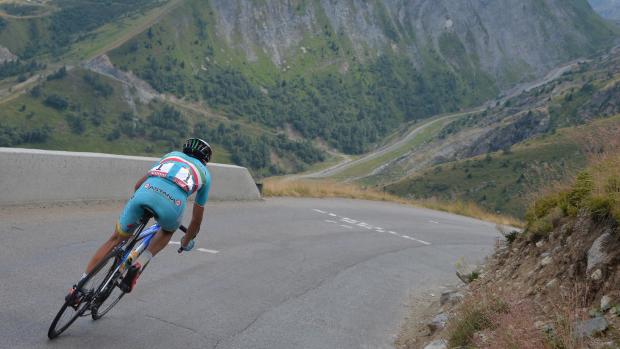Terminal Velocity Skydiving
If when you are not cycling, you are skydiving, you are already familiar with terminal velocity. It is a condition where the aerodynamic drag balances out your weight and you are no longer increasing speed because the forces acting on you are balancing out.

In a nominal skydiving scenario, terminal velocity is about 122 mph. It takes 3 seconds to reach 50% or 61 mph, 8 seconds to reach 90% or 110 mph, and 15 seconds to reach 99% or 121 mph.
Terminal Velocity Cycling
So what does that have to do with cycling,? I certainly am not doing 122 mph on any of my descents. When I first began cycling, I had a stretch in the Santa Monica mountains where the reward was an extended descent. At first I expected that I would continually pick up speed until I reached the bottom. But what I found was that I seemed to reach a speed around 35 mph where I seemed to stop accelerating.

What I realized was terminal velocity can be achieved even in cycling. The only requirement is aerodynamic drag needs to become large enough to counter the force pulling you down the slope.
When you are on a slope, your weight has two components. One is directed into the road and the other is what is pulling you down the slope. That component is given by Sin Θ * Weight. A 10° slope is considered steep. For a 150 lb cyclist, the force down the incline is 26 lbs., much smaller than the 150 lbs pulling a skydiver down.
Cycling Terminal Velocity Speeds
At what speed would your aerodynamic drag reach 26 lbs? This happens around 45 mph for a combined cycle speed and headwind. At half the slope, the required drag would be 13 lbs, and achievable at a combined speed and headwind of only 32 mph.
So the answer is yes!
Aerodynamic drag plays a key role in cycling. It is the limiting factor to speed on the flats, and even more so in descents. When riding down a long descent, your speed will eventually reach a point where it stays constant even though you are continuing to ride down the slope. In another blog, we will discuss what happens when you are riding with a tailwind rather than into a headwind.
